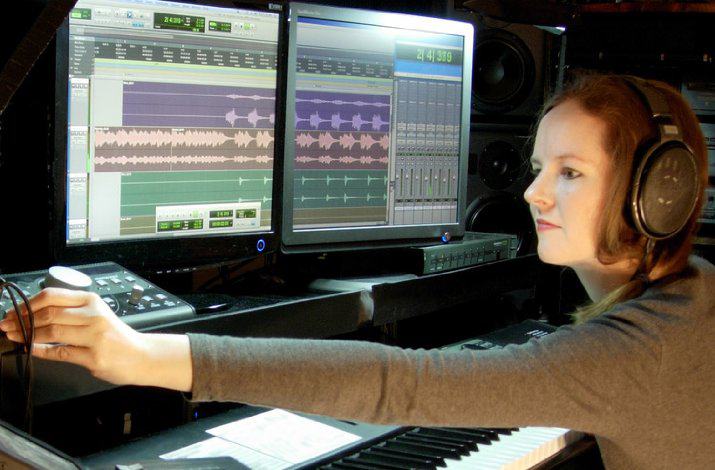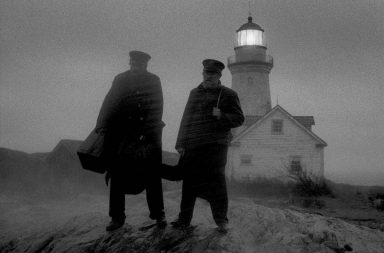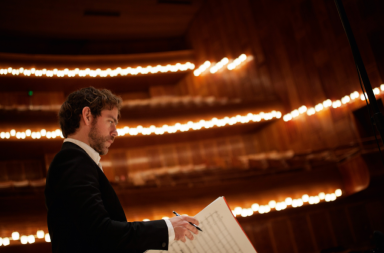For the award-winning video game composer Winifred Phillips, the sky’s the limit. With an almost impossibly eclectic repertoire, Phillips has composed for game genres such as action thrillers, broad comedies and lyrical romance. Her game composition work has contributed to five of the biggest franchises in gaming: Assassin’s Creed, LittleBigPlanet, Total War, God of War, and The Sims. Her other credentials include The Da Vinci Code and Charlie and the Chocolate Factory.
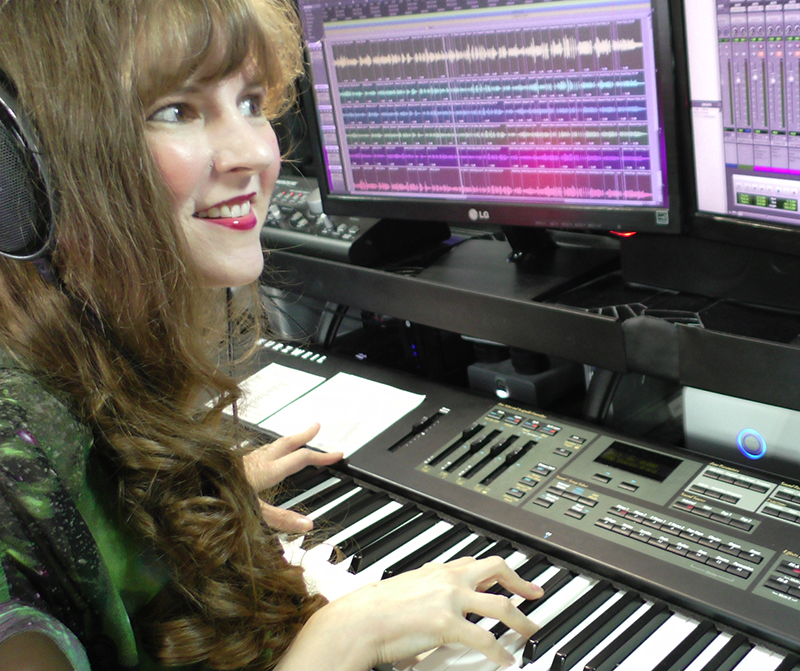
Dubbed a “superstar of video game music” by Music Connection Magazine, we had the privilege of speaking with Phillips about her career and the exciting gaming world.
Score It: Nowadays, the narratives in video-games are becoming more nonlinear, with the player’s freedom of action resulting in an unpredictable gameplay. This presents a difficulty to video game composers, because the music has to adapt to follow the player’s actions. Can you explain how you approach this challenge and how you compose interactive music?
Winifred Phillips: Music for an interactive framework is a creative challenge that we’ve been grappling with for a long time. There are many models that can be applied, depending upon: the audio-engine of the game, what the technical capabilities are of the game engine itself, and also what the game-development team wants the game to achieve. Additionally, the design of the game itself dictates how interactive the music would be.
The classical way of creating interactive music in video games is where the game-engine triggers music from a data file as individual notes, which in turn triggers out to a collection of instruments. The drawback is that it does depend on the amount of memory that is available for the sample library. This tends to create a more synthesised, electronic sound, which limits a composer who is looking for a more organic or acoustic sound.
Nowadays, interactive music is commonly achieved by two models: using ‘horizontal resequencing’ or ‘vertical layering’. ‘Horizontal resequencing’ separates a piece of music into chunks, whose order can then be reorganised. This creates elasticity and reactivity in the music.
The other way is through ‘vertical layering’, where the music is broken down into stems. In film music and television music composition, sometimes the composer is asked to deliver the music with the instruments recorded separately in their own distinct audio recordings, so that the music can be mixed to fit quickly with the final film or television program.
This idea of ‘vertical layering’ in video games is somewhat similar to that concept. The music can essentially turn off and on certain instruments while the player is playing, or adjust the mix to accentuate certain elements while pulling other elements back. That allows the music to be more elastic and reactive to game play.
(Winifred has written an article on her blog on the topic of interactive music and also discusses the subject in her bestselling book, A Composer’s Guide To Game Music.)
Her work on God of War won the Game Audio Network Guild Award in 2005 for Best Interactive Score:
Regarding your latest work for the virtual reality game Dragon Front, the music seems to be more in the background, creating the general atmosphere. Were there any particular difficulties composing for this game?
Composing for Dragon Front was an interesting challenge. It’s a virtual reality game, so I had to be very aware of the fact that virtual reality poses its own distinct problems for the audio team.
There is a phenomenon known as Visually-Induced Motion Sickness (VIMS), something which faces everyone involved in designing for virtual reality. We are thinking about this issue significantly.
Regarding music, I tend to think about how infrasound may cause problems for players in virtual reality. I think that low-frequency sound is a problem for VIMS, because infrasound can actually make people feel physically uncomfortable (woozy or unsteady), especially if you have low-sustained infrasound. This usually isn’t a problem when watching a film or a television show or playing a traditional game, because you would need aggressive infrasound to affect you. But, in virtual reality, you’re already prone to feel a certain level of motion sickness just because of what it is.
That being said, Dragon Front is not as prone to that problem as other virtual reality games are, because the players are stationary. They’re controlling their units on the battlefield, surveilling the field from a high tower. Therefore, the players don’t move themselves, they move their units, and then watch their units deploy. That helps keep the virtual reality experience in Dragon Front comfortable for players.
I tended to focus on how strategy players think and what their needs are in order to aid concentration. I tried to keep music responsive to the mindset the strategy gamer would have while surveilling the battlefield, having lots of different options and considering choices. The music is subtle and it does stand a little bit back in the mix. Yet, it is also quite insistent and aggressive, because it’s setting a tone for that world, which is a combination of high-fantasy concepts and the sort of hammered-steel and military elements we’d associate with World War Two.
As a composer, I always had that in my mind: the fact that I was responsible to help create that world, sonically.
What are the main differences composing for a virtual reality game compared to a traditional video game? Do you use specific software or technology?
What’s exhilarating is that we’re in the early, wild-west days of virtual reality’s development. There aren’t any universal tools that everyone is using yet, nor are there any standards in terms of what its music and sound should accomplish. Going to game-development conferences is very exciting right now, because the conversations generated when audio experts huddle together are fascinating. Everybody’s throwing out wild ideas and very imaginative ambitions. I’ve been enjoying that very much.
For music in virtual reality, the big discussion right now is whether music should be localised to the physical world, or whether it should remain as more the background accompaniment that follows the player wherever they go. The issue is the sense of presence that virtual reality gives the player, as they are more conscious of a sense of personal occupation, since they are inside the world, exploring. A problem we grapple with and worry about is the idea of music hovering over their shoulder and following them, which starts to feel like the ‘Music God’.
On the other hand, an interesting way to solve the problem is if you associate music with that environment, assigning stems of the music to specific locations within the world, that you would then experience as you pass by. Nonetheless, that means that the music becomes more actually associated with the physical world. Do we really want the players to really think there is this specific music in this environment that they’re exploring?
When you’re watching a thriller film with tense music, you’re not thinking that the hero is then going about their adventure with a sub-track following them. But, in the environment of virtual reality, you do have to wonder if the player is going to make that association, if the music is affixed to the environment.
That’s the big conversation we’re having right now: whether the music should be essentially a voice from up high, or whether it should be fixed to the environment. We stick both ways in different games and they both have strengths, but there are also issues.
How do you approach all the current excitement concerning virtual reality technology?
It’s always very exciting when you get to be at the cusp of a new frontier, and that’s what virtual reality feels like right now for everybody involved. That’s very inspiring as an artist: to think that you could essentially create a new sonic language for a new kind of entertainment experience. I don’t think I personally had any vision of what virtual reality would be or mean for me as a composer. Nevertheless, that’s the joy of this kind of work as a composer for new interactive media, because there are so many different and absorbing challenges that get thrown at us. Game developers are super inventive in the ways in which they redefine what the entertainment experience can be, and how players can be enthralled and challenged by it and how they can engage with it. My work as a game composer is always evolving to accommodate and enhance that vision that the game developers have.
Apart from Dragon Front, there’ll be another virtual reality project I’ll be beginning soon that I can’t talk about. It looks like there is quite a lot of this kind of work in front of me which I’m very interested in pursuing.
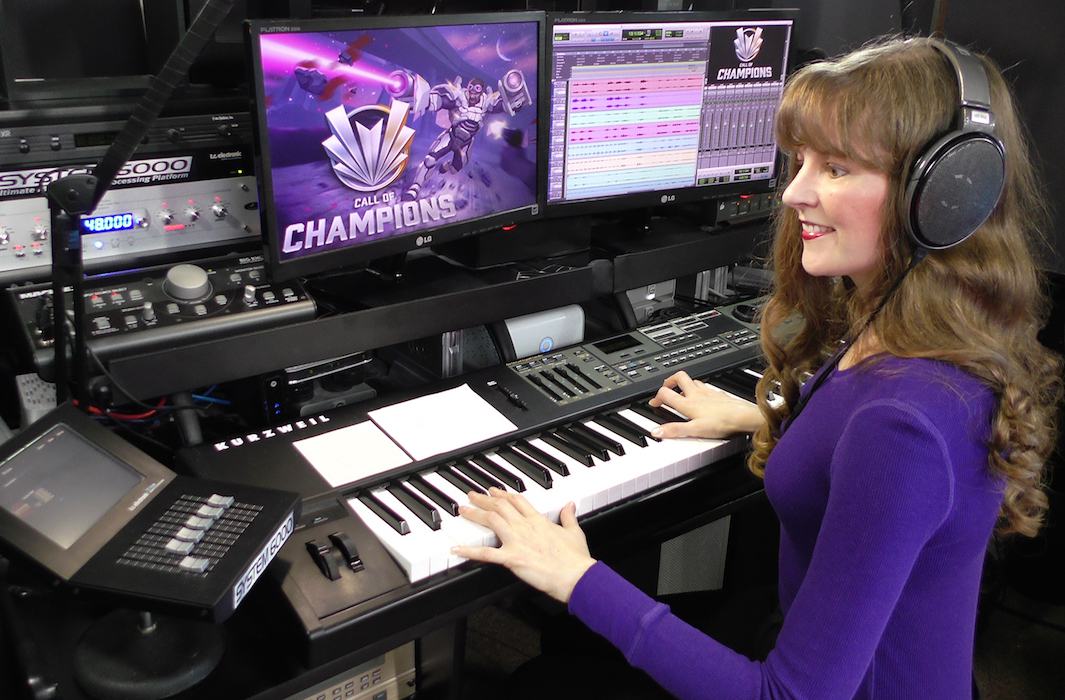
You have composed the scores for a great variety of video games, from SimAnimals to God of War and to the Da Vinci Code. How do you take on this change of game genre when composing?
At the start of my career, I was hired for these two games at the same time. They have two very different themes: God Of War is this violent, bloody epic, and Charlie And The Chocolate Factory is a whimsical game, tied to the Tim Burton film. I got the chance to express myself in two very divergent paths, right from the start. I think, because of that, I haven’t been identified with a very specific musical genre. I’ve bounced back and forth between serious, actiony-type projects which are dark, and creatively-eclectic projects which are bright.
I learn different things from varied kinds of work, picking musical tools that I learned from lighter projects and bringing them with me into the darker endeavours. Equally, I take some of the visceral aspects learnt from the grim projects and then bring them in to add impact to the whimsical games. It’s broadening. I’ve really been grateful for the path my career has taken; not every composer gets the opportunity to work like this, and it feeds my creative spirit.
It is challenging. Each project seems to be a big swing away from the style of the one before, and I like that. You don’t get jaded working with games, because even if the genres were the same, the challenges of the work’s technical aspects would always be evolving. It never gets boring.
(A music reel video with excerpts from Phillip’s scores on Assassin’s Creed III The Liberation, Spore Hero, God Of War and LittleBigPlanet highlights the wide variety of styles she has worked with:)
https://www.youtube.com/watch?v=KlTItk-mpNU
Some video game composers have also written film scores. Indeed, your compositions feature in the block-buster Jungle Book (2016) trailer. Is this a career-move you consider making in the future?
I have had the opportunity to do some television and film work. When I was hired for Homefront: The Revolution, my responsibility was to create music for the game’s narrative portions.
In a lot of ways, it was very similar to film scoring. They are as not as far apart as we perceive them to be. Games, more and more, are telling great stories and are trying to engage players on an emotional level. The skills that you need as a film and television composer you now also need as a game composer. The work I do translates well into film and TV.
In the music industry, video game music and sounds have featured in songs by various artists. Would you be happy with your work being featured in popular music?
That certainly would be fun; I would enjoy it. It’s always exciting to see what other artists do with your work and what they bring to the original vision. When I was doing composition work for the LittleBigPlanet franchise, they did some cover versions of music that the composers had created, so I got to see some captivating covers of my work in different genres from the original. That kind of elaboration and remote kind of association of ideas can only be good for both sides of the equation.
Of all the games you’ve worked on, which score is your favorite?
That’s a tough one. At this point, I have to tell you that it was the latest thing I’ve worked on, which I’m not allowed to talk about! I find that whatever I’m currently working on tends to be the genre and feel where my mind is focused; that will be my favourite at that point. If I’m working on a whimsical game, I’ll be thinking back to the lighter projects, and they’ll have more place in my heart. If I’m working on a dark game, I’ll be thinking of those really aggressive projects.
I like to keep myself ‘musically agnostic’. I like to keep a very open mind about music genres and styles, leaving it all open in terms of what I could do in the future, so that I never feel limited in the kind of experimentation I can do. That informs the way I think about music, both with work I’ve done in the past and what I hope to do in the future.
What kind of music are you into nowadays?
That’s a hard one. My iTunes playlist is so chock-full of different kinds of songs. I don’t really have a particular style I cleave to. I really like to bounce around everything: from classical to experimental, pop, EDM and metal. I like to listen to music with a sense of what interests me. Sometimes the entire piece may not be compelling, but some aspects of it will. That will draw me in, and I’ll listen to it for that reason. It’s kind of like musical archaeology; I’m looking for the clues and little pieces of the unearthed, so I can bring them out and find something special.
Tell us about the success and impact of your book.
Writing the book was an amazing experience for me. I wanted to do it because there hadn’t been a book that really focused on the art of game composition, solely from the perspective of music makers. A lot of the books at that time focused on game audio as a whole, and they were written purely from a technical perspective. They didn’t broach the creative issues and aspects that face game composers. As a new game composer coming into the game industry, that was something that I had really wanted.
Therefore, when I got to the point when I really had something to share — I had been in the industry for long enough, and had sufficient experience — then I really wanted to write this book, so there would be a resource for composers who were struggling with both the technical and the creative sides of game composition. That meant something to me.
It has really brought me in touch with the game-audio community: I’ve met so many wonderful game-audio composers, artists and teams. The book is used in lots of different educational institutions and courses of study for game-audio specialists and game-composers, which is mind-blowing for me and so exciting. I’m grateful that I’ve had the opportunity to contribute to this medium that has brought me so much joy.
Finally, what do you think the future holds for virtual reality and video games?
I’ve been in the game industry for a while now. My music producer Winnie Waldron and I started back on the project and we’ve been working together ever since then. I’ve seen the game industry really broaden and develop, include new audiences and become more embracing of a cross-cultural environment with lots of different kinds of people.
Virtual reality is a way in which we make games tactile and approachable by dragging the player into the world, and not saying “here’s a controller, now mentally place yourself there”. The player no longer has to do that by looking at a screen; they are placed inside the world and can react to it instinctively. That doesn’t require a set of tools that gamers needed before, making it a more open and inviting environment. It’s certainly very thrilling, because that evolution redefines the set experience for gaming. I think virtual reality opens gaming up to even more players, and widens the possibilities of what games can do and how they can become part of our lives.
Twitter: @winphillips
Blog: https://winifredphillips.wordpress.com
Interview prepared, conducted, transcribed and edited by Amalia Morris and Sylvain Pinot.
Edited by Marine Wong Kwok Chuen.
